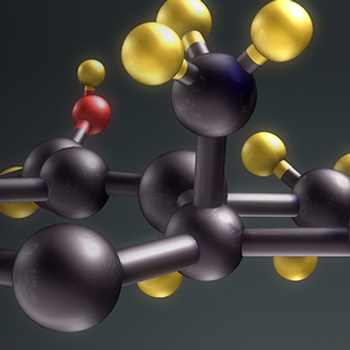
Results of a pooled analysis of 3 clinical trials suggest that the magnitude of fingolimod’s treatment effect in MS is not affected by the presence of migraine or headache in patients.

Matt Hoffman, Editorial Director for NeurologyLive, has covered medical news for MJH Life Sciences, NeurologyLive’s parent company, since 2017. He executive produces the NeurologyLive Mind Moments® podcast, and hosted the Medical World News show Deep Dive. Follow him on Twitter @byMattHoffman or email him at [email protected]

Results of a pooled analysis of 3 clinical trials suggest that the magnitude of fingolimod’s treatment effect in MS is not affected by the presence of migraine or headache in patients.

Data from 5 clinical trials and their extensions along with 1 real-world study suggest that treatment with teriflunomide can help patients of varying ages maintain low annualized relapse rates and stable EDSS scores.

Follow-up data extending out to 8 years suggest that both clinical and MRI outcomes are better with alemtuzumab (Lemtrada) than interferon beta-1a in patients with relapsing-remitting multiple sclerosis.

In those with MS treated with subcutaneous interferon beta-1a, Magnetic Resonance Imaging in multiple sclerosis scores may be predictive of the time to new clinical disease activity and disease progression.

The anti-CGRP agent was shown to decrease monthly migraine days, in addition to having higher ≥50% and ≥75% responder rates, reductions in acute medication use, and enhancements in MSQ RF-R domain scores for patients who failed ≥2 more preventives.

Despite a 40-fold increase in the use of LAAC in a 9-year period, those who had a history of stroke with major bleeds and higher comorbidity were less likely to have LAAC.

An MDA panel has stated that accessibility of advanced screening, the introduction of effective treatment, and the support of professional organizations could, and should, prompt the expansion of newborn screening.

The research fellow in the Department of Radiology at Mayo Clinic Jacksonville spoke about the reasoning for conducting this study and what the findings mean for physicians in clinical practice.

The automated system detected epileptic seizures and psychogenic non‐epileptic seizures with a sensitivity of 72.7% and specificity of 100%. The positive and negative predictive values for PNES classification were 81.3% and 100%, respectively.

The investigators suggested that this may be indicative of intrathecal IgG synthesis as a useful marker of disability worsening in patients with MS, as well as in making early treatment decisions.

Ultimately, the risk of peripheral neuropathy increased by an estimated 3% for each additional day of current fluoroquinolone exposure, maintained for up to 180 days post-exposure.

New early-stage data suggest that vector‐mediated gene silencing of striatal CaV1.3 expression may hold promise for preventing the induction of levodopa-induced dyskinesias in Parkinson disease.

Compared to sham stimulation, the REN device was more effective in achieving pain relief and relief from the most bothersome symptom at 2 hours posttreatment and was maintained at 48 hours post-stimulation.

The WHO guidelines specifically promote a healthy lifestyle, including regular exercise, not smoking, avoiding the harmful use of alcohol, maintaining a healthy weight and diet, and keeping healthy levels of blood pressure, cholesterol, and blood sugar.

The lead investigator noted that “the study results are a promising step toward having a scientifically-validated tool for clinical use that can facilitate physician-patient conversations and ultimately help to get ahead of MS progression.”

Evobrutinib is the first BTK inhibitor to demonstrate clinical proof of concept in multiple sclerosis, reducing Gd+ lesions in a 75-mg, once-daily dose.

Suvorexant improved the mean total sleep time by 28.2 minutes for the patients receiving the treatment versus placebo, equating to a mean increase of 73.4 minutes with the orexin receptor antagonist.

The amifampridine tablets are the first approved therapy specifically indicated for the treatment of pediatric patients with LEMS, a rare autoimmune disorder with neuromuscular symptoms caused by affected nerve connections and muscle weakness.

The chief medical officer of Neurocrine Biosciences spoke about how long-term data on valbenazine (Ingrezza) has helped shape the understanding of the effect tardive dyskinesia can have on patients, and how it can inform better utilization of the medication.

Enough evidence to support further evaluation in a phase 3 trial in myasthenia gravis has been collected from these new phase 2 data of zilucoplan, formerly known as RA101495 SC.

Compared to interferon beta-1a, the reduction of grey matter volume loss was greater in those treated with both doses of the oral S1P receptor modulator across all age groups, including the youngest patients at the highest risk for brain volume loss.

Although the primary end point of centrally video-rated TETRAS Performance Subscale did not achieve statistical significance, CX-8998-treated patients showed significant improvements in a number of other measurements.

The sphingosine1-phosphate receptor modulator was shown to annualize relapse rates by more than 70% for patients switching from other disease-modifying therapies such as dimethyl fumarate; teriflunomide, and daclizumab.

The medical director of neurology and co-director of the Jane and John Justin Neurosciences Center at Cook Children’s Hospital spoke about what CBD has shown in clinical trials and how it could make an impact outside of Lennox-Gastaut and Dravet syndromes.

The phase 2 STARS trial was the first time in 50 years that an overall improvement in patients with Angelman syndrome was observed, in this instance with a once-daily dose of gaboxadol, also known as OV101.

In a pair of phase 2 trials and a phase 1 study, patients with SMA types 1 and 2 treated with the gene therapy displayed a number of motor milestone achievements and a prolonged event-free survival rate.

Although animal models and early phase studies suggested some potential for the hypertension medication to slow disability progression in Parkinson disease, a phase 3 assessment showed a lack of treatment effect.

In patients with Dravet syndrome who had discontinued an average of 4 antiepileptics drugs, while taking a mean of 3, cannabidiol reduced the incidence of seizures almost in half in doses of both 10 mg/kg and 20 mg/kg per day.

The report includes consensus-based recommendations, which consist of guidelines for the diagnosis and staging of LATE-neuropathological change—defined by stereotypical TDP-43 proteinopathy both with or without simultaneous hippocampal sclerosis pathology, in older adults.

Researchers found that cognitively unimpaired patients with apneas had an average of 4.5% higher levels of tau in the entorhinal cortex than those who did not have apneas, after controlling for several other factors.